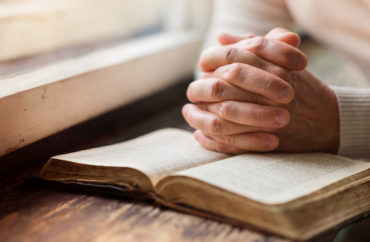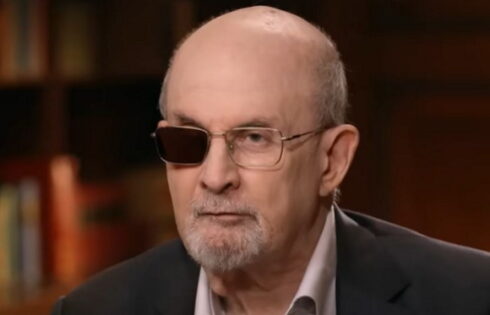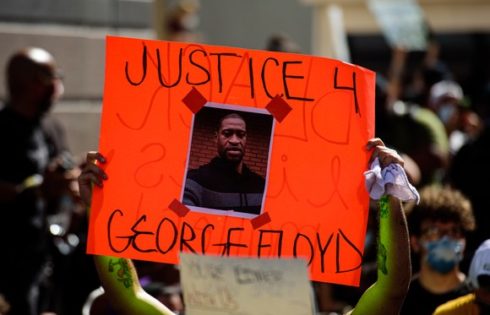
UPDATED
Khyati Joshi is a professor at Fairleigh Dickinson University who recently delivered a presentation at Rutgers University and wrote a book on the topic of “white Christian privilege.”
But one of her main arguments, that the legal system favors Christians, falls flat because there’s numerous examples to the contrary. Joshi either failed to conduct basic research into the history of religious freedom or simply ignored examples that did not fit her narrative.
Furthermore, Joshi argued that Christian politicians do not face questions about their religion, while non-Christians do. This also falls short.
Joshi argued during her Rutgers presentation that non-Christian religions, such as Judaism and Native American religions, have had to fight for religious liberty. It’s an example of Christian privilege, the professor said, because Christians do not have to go to the courts to defend their beliefs.
That is inaccurate.
For example, Joshi did not discuss the 2014 Hobby Lobby case concerning the Obamacare birth control mandate. In that case, the Christian owners of the crafts store chain sued to prevent the Obama administration from forcing them to pay for birth control and violate their religious beliefs.
Professor Joshi responded to The College Fix today after this article was published with several comments relating to a previous media inquiry on her presentation, including a comment on the Hobby Lobby case and on Christian candidates. The original article has been updated with those comments.
Joshi told The Fix that she does discuss the Hobby Lobby case in her book, but as an example of Christians forcing their religion on others.
Joshi ignored two similar cases concerning the Catholic Little Sisters of the Poor, whom the Obama administration first tried to force to pay for birth control. The state of Pennsylvania later took up the fight, even though the Supreme Court had already smacked the mandate down in 2015. Pennsylvania lost that battle in 2019.
MORE: Religious schools ask Supreme Court for freedom to choose employees
She likewise ignored baker Jack Phillips’ lawsuit against Colorado’s Civil Rights Commission for handing him a punishment after he refused to bake a wedding cake for a gay couple.
The professor of education never discussed the 2019 Supreme Court case over the Peace Cross in Bladensburg, Maryland. The American Humanist Association challenged that placement of the cross, which honors World War I veterans, on public lands.
Ignoring counter-examples of Supreme Court cases is not the only way Joshi failed in her argument. She also falsely asserted that Christian politicians do not face the same scrutiny as non-Christians.
An example of personal Christian privilege includes that Christian politicians can run for office without having their faith challenged, Joshi said.
But Joshi later discussed during her Rutgers presentation how Mitt Romney’s Mormon beliefs were challenged by other Christians in 2012.
Joshi did not bring up recent debates over former Vice President Joe Biden’s Catholicism and his support for abortion. She also failed to discuss the attacks Senator Rick Santorum faced in 2012 over his Catholic beliefs and the way his wife and him mourned a miscarriage.
She looked the other way at how appointees of President Donald Trump have faced questions, either from the media or from politicians, about the role Catholicism plays in their life.
Not once in her presentation did Joshi talk about California Senator Dianne Feinstein accusing Catholic judicial nominee Amy Coney Barrett of allowing her Catholic beliefs to influence her judicial decisions.
“The dogma lives loudly within you,” the liberal Senator told Barrett during the nominee’s 2017 hearing.
How about judicial nominee Brian Buescher, a member of the Catholic fraternity organization Knights of Columbus? Joshi never mentioned the entirely inappropriate question from Hawaii Senator Mazie Hirono about his membership in that group.
Salon also criticized Attorney General William Barr for being a member of Catholic religious order Opus Dei, falsely portrayed as a cult in the “Da Vinci Code.”
He’s not a member of Opus Dei, but if he was there wouldn’t be anything wrong with that either.
Not that it would matter to Joshi, since she refuses to consider counter-examples that would undercut her argument.
Joshi’s argument for Christian privilege is a failed one.
Editor’s note: This article has been updated with a link to comments from Professor Joshi on another article on this subject.
MORE: Student sues Florida State for removal from student gov due to Catholic beliefs
IMAGE: Halfpoint / Shutterstock.com
Like The College Fix on Facebook / Follow us on Twitter







Please join the conversation about our stories on Facebook, Twitter, Instagram, Reddit, MeWe, Rumble, Gab, Minds and Gettr.